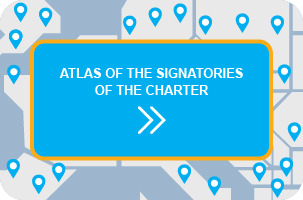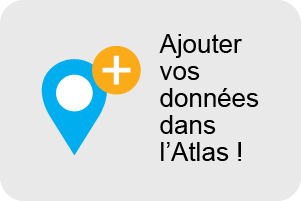City of Frankfurt – Interview
City of Frankfurt – Interview 2014/11/04
Interview with Stephanie Kürsten-Camara – Policy Officer in charge of implementing the European Charter for Equality at the Women’s Department at the City of Frankfurt am Main
Signature of the Charter: 8th of March 2012
Background to signature of the Charter: The initiative to sign the Charter came from the previous Vice-Mayor in charge of Women’s Affairs, Ms Jutta Ebeling. When she left her position in 2012 she wanted to leave a mark for gender equality by signing the Charter. The City of Frankfurt was already well informed on the Charter thanks to Ms Gabriele Wenner (Head of the Women’s department in Frankfurt) who participated and contributed as an expert in the elaboration of the Charter in 2006.
The City of Frankfurt has a long tradition of working with gender equality and women’s affairs issues thanks to a solid support from political side. The City of Frankfurt previously had three female mayors (one female mayor and two female vice-mayors) which had an impact on policies on gender equality in the City according to Ms Kürsten-Camara. Above that, there has been a large women’s movement from the 70s on in Frankfurt am Main.
Stephanie Kürsten-Camara started working at the Women’s Department in 2013. She is working full time exclusively on the implementation of the European Charter for Equality. The City of Frankfurt also has a specific budget dedicated to the implementation of the European Charter for Equality.
Organisation of the Equality work at the City of Frankfurt:
At the City of Frankfurt two public service departments are working on gender equality; the Equality office that is in charge of the internal work on equality at the City administration and the Department for Women’s Affairs City of Frankfurt working on ‘external’ equality issues concerning citizens and gender mainstreaming.
Elaboration of the Action plan:
The City of Frankfurt decided to focus on one topic only in their action plan and choose “Equality and women’s participation in the labor market”, an important issue in Germany, especially since women are over-represented among employees working part time (80 % of part time jobs are done by women).
The process of elaboration:
Since Frankfurt already had worked a lot on internal issues related to equality, working on the Charter was seen as an opportunity to broaden the work and take it in another dimension. Frankfurt wanted that the elaboration of the action plan should be an inspiring participatory process involving a wide range of stakeholders. Therefore it was decided to use the method “Community of Practice” in three workshops organized in 2014 to which a wide-range of stakeholders from different sectors were invited; associations, job centers, large banks and enterprises, labor unions, universities, social organizations, public service, local politics and the cultural sector.
The implementation of the Action Plan:
Only the actions carried out by the participants themselves are being put into effect. All resources will come from or through the community of practice. By providing favourable conditions and accompanying and monitoring the implementation of the Action Plan, the Department of Women’s Affairs will sustain this driving force for change.
Duration of the Action plan:
It was decided that the elaboration of the action plan would take 2 years and the implementation period would take 2 years. The action plan for Frankfurt will officially be launched in 2015 and cover 2015-2016. The evaluation will be done in 2017 at the same time as the City will start drafting the second action plan.
The City of Frankfurt organised together with the German Association of Cities RGRE a Seminar on how to implement the European Charter for Equality and how to elaborate an action plan. The seminar took place on the 26-27 of November 2013, to read more about the event please click on the following (link) (Information in German).













